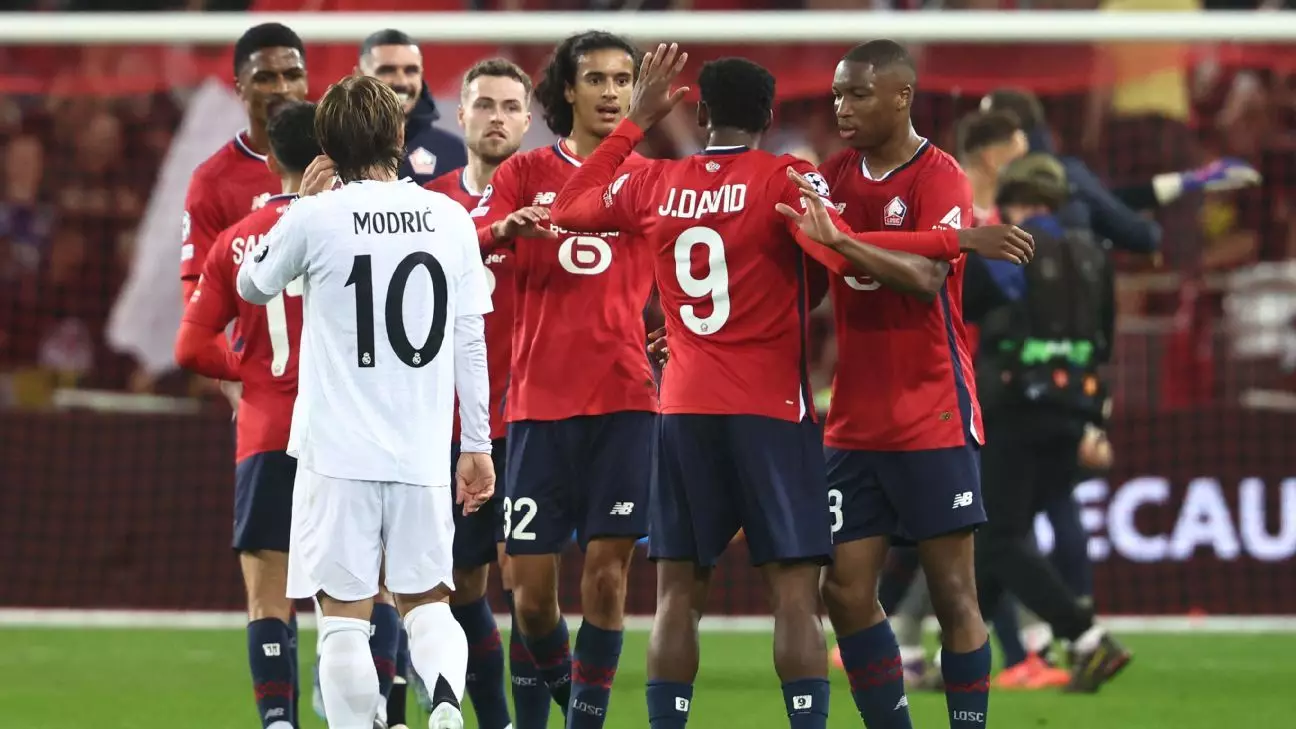In a match that left fans and analysts alike scratching their heads, Real Madrid succumbed to a disappointing 1-0 loss against Lille in the Champions League. Under the watchful eye of head coach Carlo Ancelotti, the team faced a barrage of criticism for their lackluster performance, characterized by passive play and missed opportunities. Ancelotti acknowledged the legitimacy of the critiques, emphasizing that there should be no attempts to deflect responsibility for the team’s shortcomings on the pitch.
The solitary goal came from Jonathan David, who converted a penalty kick just before halftime, following a handball by Eduardo Camavinga that was confirmed through VAR review. This moment of misfortune encapsulated a larger trend during the match: Real Madrid was frequently on the back foot and struggled to assert their style of play. Despite efforts from players like Vinícius Júnior and Jude Bellingham to influence the game, the team faced difficulties creating coherent attacks, leading to a near-total inability to capitalize on scoring opportunities.
Post-match remarks from goalkeeper Andriy Lunin underscored an important facet of the game: aggression. The players themselves recognized that they had to bring more energy and creativity to their gameplay ethos. Progress required a commitment to fight for every ball and take chances. Lunin’s comment highlighted a often-cited issue—too many players were content to accept the status quo rather than push for dynamic play that would force the opponent into submission.
Throughout the game, Real Madrid’s approach appeared stagnant, lacking the vertical dimension that allows for quick transitions and penetrative play. Ancelotti pointed out that possession of the ball was lethargic, which made it exceedingly difficult for forwards to receive the ball in advantageous positions. This tactical failure illustrates a need for a renewed focus on movement off the ball and faster passing to break down opposing defenses. Without these elements, Madrid risks becoming predictable and easy to neutralize.
Following this setback, Real Madrid finds themselves in an uncomfortable position—currently sitting in 17th place in the Champions League group stage. With only three points from two matches, there is a pressing urgency for the squad to regroup and refocus before their next encounters. Ancelotti’s candid assessment that “today everything was quite bad” will serve as a catalyst for change. Collectively, the team must analyze their performances and adopt a proactive approach moving forward.
Amid the gloom, one notable aspect of the match was the debut of Endrick, who made history as the youngest player to start a Champions League game for Madrid at just 18 years and 73 days. The young forward’s presence offers a glimmer of hope for the club’s future as he represents a continued investment in youthful talent that could eventually help restore the team’s competitive edge.
While the loss to Lille serves as a wake-up call for Real Madrid, it is not a death knell. There are lessons to be learned, and the period ahead must be focused on revamping their approach to ensure that such shortcomings do not become a recurring theme. The legacy of Real Madrid demands excellence, and it is essential that the players rise to this occasion.

